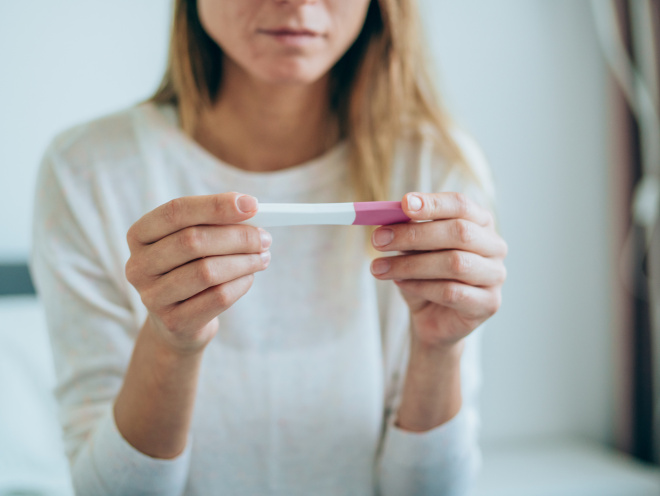It’s a hard topic to discuss but miscarriage is more common than you may realise. In this article we share some basics information about miscarriage. Read our other article if you think you may be having a miscarriage.
What is a miscarriage?
In the UK a miscarriage is defined as the loss of a pregnancy up to 23 weeks and six days of gestation. This mostly happens in the first 12 or 13 weeks and is called ‘Early miscarriage’ (RCOG, 2016). Losses after this are called ‘Late miscarriage’ (Miscarriage Association, No date).
Some people experience multiple or ‘recurrent’ miscarriages. This is defined as three or more miscarriages, even if you have had healthy pregnancies in between (Miscarriage Association, 2023).
The main causes of miscarriage are thought to be:
- A genetic problem with the baby (which accounts for more than half of early miscarriages)
- The mother’s hormones, for example Polycystic Ovary Syndrome (PCOS)
- A blood-clotting problem affecting the placenta, such as Antiphospholipid Syndrome (APS)
- Serious infections or very high fever in the mother
- Fibroids or an unusually shaped uterus (Miscarriage Association, No date; Miscarriage Association, 2024)
What do we know about miscarriage?
Around one in four pregnancies end in miscarriage (Miscarriage Association, No date). It is not known what causes many of them, but it’s unlikely to be caused by something the mother did or did not do (Miscarriage Association, 2024).
Factors associated with miscarriage include some beyond your control, like age, ethnicity, and the shape of your uterus (Miscarriage Association, 2024).
Factors you might be able to address include:
- Smoking, or drinking more alcohol or caffeine than recommended.
- Being under- or over-weight.
- High fever or other serious infection
- Vaginal infection
- Other infections picked up from unpasteurised or uncooked food, infected farm animals, cat litter or soil.
- Some over the counter medicine such as Ibuprofen, and some medications for pre-existing conditions.
(Miscarriage Association, 2024; NHS, 2022)
Given the disproportionate effect of ethnicity and deprivation on all kinds of loss you may also want to:
-
Ask your midwife about culturally competent care. If not confident in the response, contact the senior midwifery team at your Trust or Health Board.
-
Seek out culturally competent care from a doula.
-
Make use of the Five X More Six Steps as recommended by the MBRRACE-UK report ‘Saving lives, improving mothers’ care’ (Knight et al, 2023).
What does not cause a miscarriage
The following are not linked with miscarriage:
- Your emotional state, or having a shock
- Exercise, lifting or straining
- Work, or sitting or standing for long periods
- Sex
- Air travel
- Spicy food
(NHS, 2022)
Support
If you’re concerned it may be happening to you, read our article on experiencing a miscarriage.
If anxious about miscarriage or struggling with your mental health, the following resources may be useful:
For further information, visit the Miscarriage Association
The Royal College of Obstetricians & Gynaecologists (RCOG) has a patient information leaflet on early miscarriage.
This article was updated April 2024
Knight M, Bunch K, Felker A, Patel R, Kotnis R, Kenyon S, Kurinczuk JJ (Eds.) on behalf of MBRRACE-UK. Saving Lives, Improving Mothers’ Care Core Report - Lessons learned to inform maternity care from the UK and Ireland Confidential Enquiries into Maternal Deaths and Morbidity 2019-21. Oxford: National Perinatal Epidemiology Unit, University of Oxford 2023. Available from: https://www.npeu.ox.ac.uk/mbrrace-uk/reports [Accessed 28 Feb 24]
Miscarriage Association (No date) Miscarriage. Available at: https://www.miscarriageassociation.org.uk/information/miscarriage/ [Accessed 28 Feb 24]
Miscarriage Association (2023) Recurrent miscarriage. Available from: https://www.miscarriageassociation.org.uk/information/miscarriage/ [Accessed 28 Feb 24]
Miscarriage Association (2024) Why me? Available from: https://www.miscarriageassociation.org.uk/information/miscarriage/ [Accessed 28 Feb 24]
NHS. (2022) Miscarriage. Available from: https://www.nhs.uk/conditions/miscarriage/ [Accessed 28 Feb 24].
RCOG (2016) Early miscarriage. Available at: https://www.rcog.org.uk/for-the-public/browse-our-patient-information/early-miscarriage/ [Accessed 29 Feb 24]




